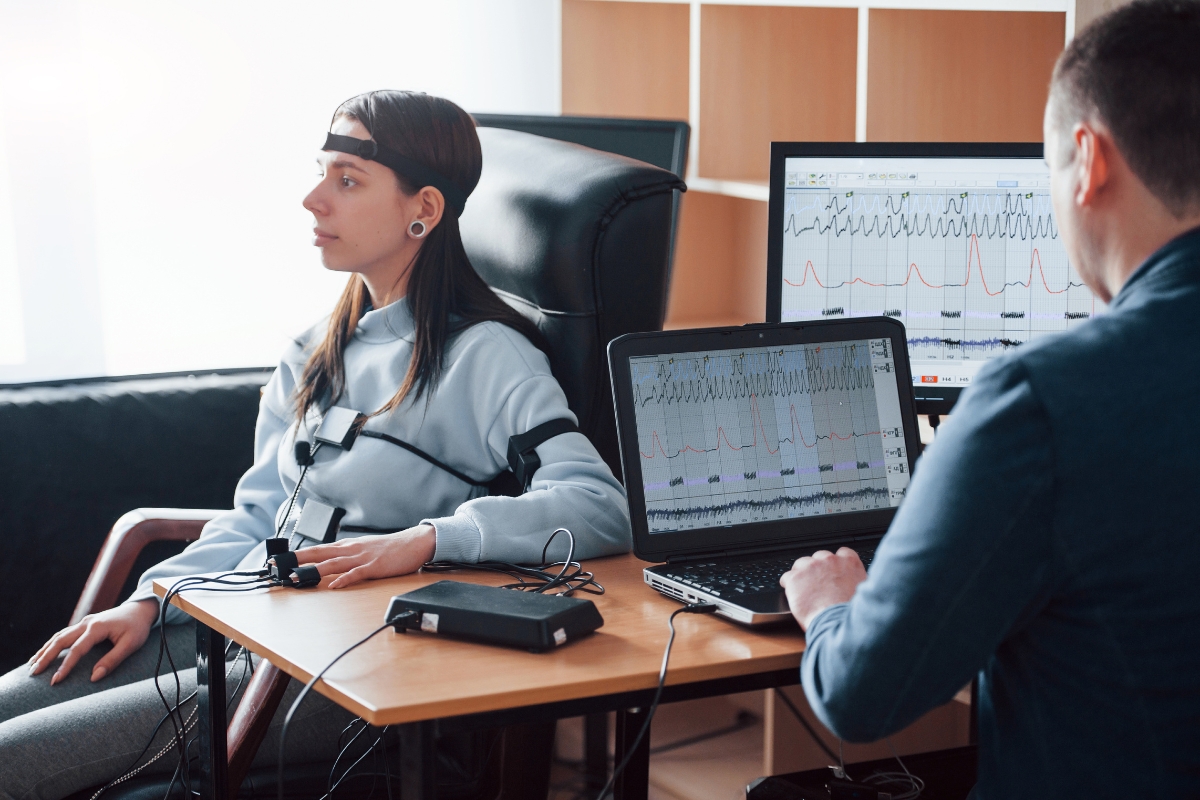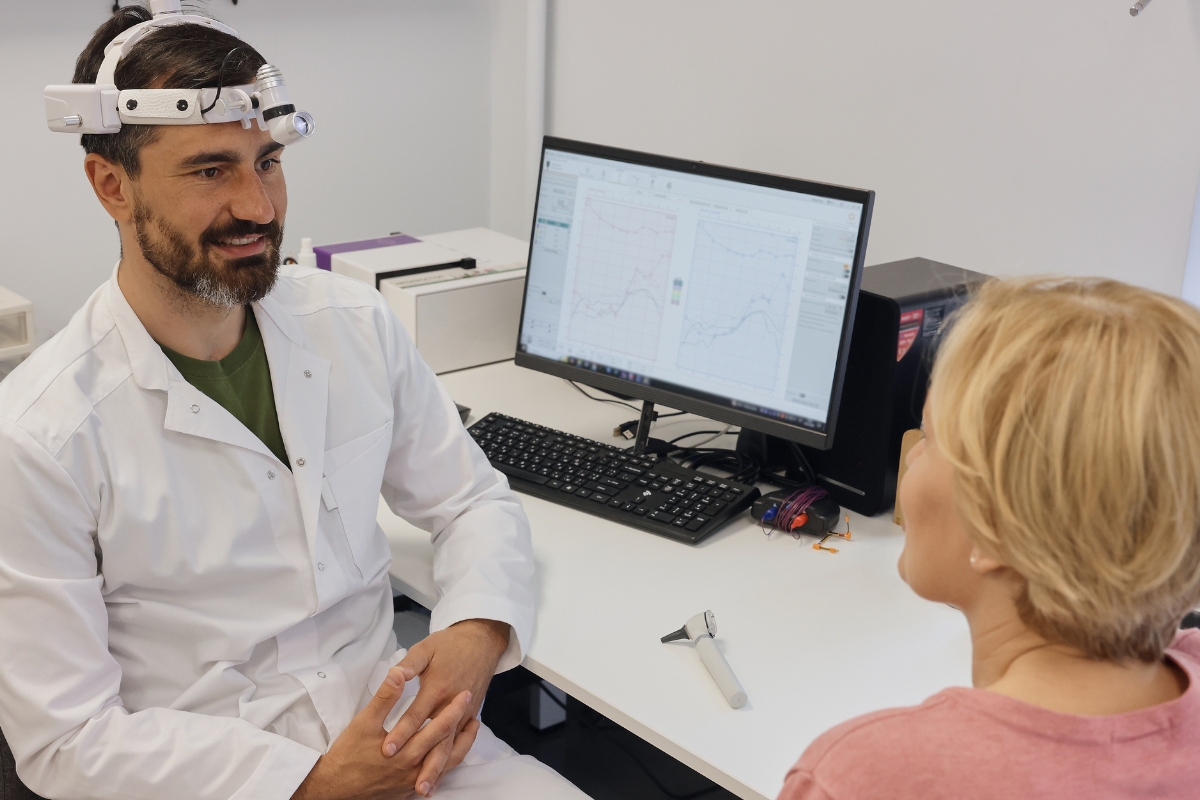How To Fix Short-Term Memory Loss?

Short-term memory loss can be a frustrating and disruptive condition that affects daily life. Whether it’s forgetting where you placed your keys, struggling to recall a recent conversation, or having difficulty remembering new information, short-term memory loss can impact your personal and professional life.
Understanding the causes and available treatments is essential in managing and potentially reversing this condition. One promising approach is MeRT therapy, a non-invasive treatment that has shown effectiveness in improving cognitive function and memory.
Understanding Short-Term Memory Loss
Short-term memory is the ability to hold and process information for a brief period, typically ranging from a few seconds to a minute. This type of memory is crucial for daily tasks, such as following instructions, having conversations, and remembering names or numbers. When short-term memory is impaired, these simple activities can become challenging.
Causes of Short-Term Memory Loss
Short-term memory loss can be caused by various factors, including:
- Aging: As we age, it’s common for memory to decline due to natural changes in the brain.
- Stress and Anxiety: Excessive tension or worry can make it difficult to focus, leading to lapses in memory.
- Sleep Deprivation: Lack of adequate sleep affects cognitive functions, including memory retention and recall.
- Medications: Some drugs may cause adverse effects that have an influence on memory.
- Head Injuries: Traumatic brain injuries can damage areas of the brain responsible for memory.
- Mental Health Disorders: Anxiety and sadness are two conditions that can contribute to memory problems.
- Neurological Conditions: Diseases such as Alzheimer’s, dementia, or Parkinson’s can cause severe memory loss.
Effective Ways for Addressing Short-Term Memory Loss
Addressing short-term memory loss involves a combination of lifestyle changes, cognitive exercises, and, in some cases, medical treatments. Here are some strategies that may help:
1. Healthy Diet and Nutrition
A balanced diet rich in antioxidants, vitamins, and omega-3 fatty acids can support brain health. Foods like berries, leafy greens, fish, nuts, and seeds are particularly beneficial for cognitive function.
- Berries: Rich in antioxidants, they protect the brain from oxidative stress.
- Leafy Greens: High in vitamins E and K, which are known to improve brain function.
- Omega-3 Fatty Acids: Found in fish, they are essential for brain health and memory.
2. Regular Physical Exercise
Engaging in physical activity promotes the creation, enhances brain blood flow, and promotes the growth of new brain cells. Exercise routines like yoga, swimming, or walking might be beneficial to improve memory and overall cognitive function.
- Cardio Exercises: Boost blood flow to the brain, enhancing memory.
- Strength training: Encourages brain cell proliferation.
- Mind-Body Exercises: Yoga and tai chi reduce stress, improving focus and memory.
3. Cognitive Exercises and Brain Training
Taking part in mentally demanding activities might be beneficial to strengthen memory. Puzzles, memory games, learning a new skill or language, and reading are excellent ways to keep the brain active.
- Puzzles and Games: Sudoku, crossword puzzles, and memory games stimulate the brain.
- Acquiring New Skills: Taking up a Novel Interest or language can enhance memory retention.
- Reading: Keeps the mind sharp and improves cognitive functions.
4. Adequate Sleep
Sleep is crucial for memory consolidation. Getting 7-9 hours of quality sleep each night can significantly improve memory and cognitive performance.
- Sleep hygiene: Keep a consistent sleep routine and establish a restful environment.
- Avoid Stimulants: Caffeine and electronics before bedtime can disrupt sleep.
5. Stress Management Techniques
Since stress can impair memory, finding ways to manage stress is essential. Practices such as meditation, deep breathing exercises, and mindfulness can aid in lowering tension and enhancing attention.
- Meditation: Helps calm the mind and enhances memory.
- Deep Breathing Exercises: Reduce stress and increase oxygen flow to the brain.
- Mindfulness: Staying present improves attention and memory retention.
The Role of MeRT Therapy in Preventing Short-Term Memory Loss
MeRT therapy (Magnetic e-resonance Therapy) is a cutting-edge, non-invasive procedure that appears to be improving cognitive functions, including memory. It functions by stimulating certain brain regions with magnetic pulses, which helps to reorganize neural circuits that may be contributing to memory issues.
- How It Works: This therapy targets areas of the brain responsible for memory, using personalized magnetic stimulation to enhance brainwave activity.
- Benefits: Studies have shown that MeRT therapy can improve focus, mental clarity, and memory, making it a valuable tool in combating short-term memory loss.
- Application: The therapy is personalized, meaning the treatment is tailored to the individual’s specific brain activity patterns, ensuring the most effective results.
MeRT therapy is particularly beneficial for individuals who have experienced memory loss due to brain injuries, neurological conditions, or other cognitive impairments. By targeting and stimulating the affected brain regions, the therapy can help restore and enhance memory function, offering hope for those struggling with short-term memory loss.
MeRT Therapy and Short-Term Memory Loss
In addition to lifestyle changes and cognitive exercises, incorporating MeRT therapy into a treatment plan can provide significant benefits for individuals experiencing short-term memory loss. Unlike traditional treatments, this treatment is highly targeted, offering a personalized approach that addresses the root cause of memory issues at the neural level.
- Effectiveness: Research indicates that this therapy can lead to lasting improvements in memory and cognitive function, especially in situations where other therapies have not worked.
- Non-Invasive: Because it is a non-invasive process, people of all ages can safely choose it.
- Complementary Treatment: It can be used in conjunction with other treatments and lifestyle changes to maximize results.
Short-term memory loss can be challenging, but it is not insurmountable. By comprehending the reasons and utilizing tactics like a healthy diet, regular exercise, cognitive training, stress management, and adequate sleep, you can improve memory function. Moreover, innovative treatments like MeRT therapy offer a promising solution for those struggling with memory issues.
By stimulating and rewiring specific areas of the brain, MeRT therapy can play a crucial role in preventing and addressing short-term memory loss, helping individuals regain their cognitive abilities, and improving their quality of life.
If you or a loved one is experiencing short-term memory loss, consider exploring MeRT therapy as part of a comprehensive treatment plan to restore and enhance memory function. With the right approach, it’s possible to regain control over your memory and improve your overall cognitive health.


